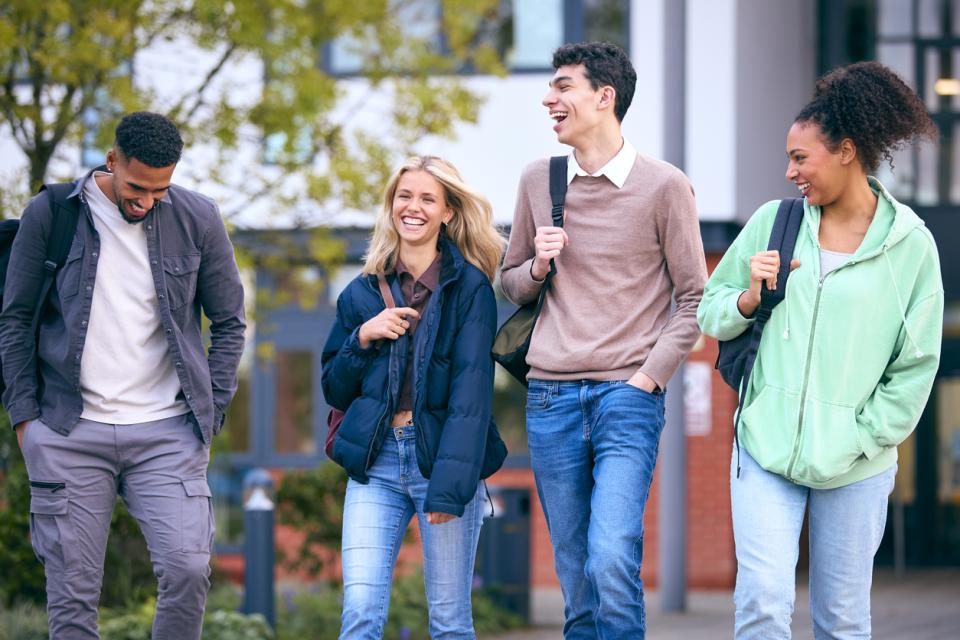A sea of new faces, a wide array of opportunities and support systems to navigate and unfamiliar academic expectations make the transition to higher education both exciting and daunting. Helping students feel they belong in their new environment can ease this shift and build confidence from day one.
If we recognise the value of fostering individual connections and a shared sense of community, how can staff create the conditions for this to happen? And, of course, belonging may look and feel different for each student. At Nottingham Trent University (NTU), we focus on these foundations through a university-wide commitment to continuous engagement with our students.
Welcome workshops
In their first week, all first-year students take part in a welcome workshop within their course. These are facilitated by trained staff from academic schools, professional services and the students’ union. The sessions are designed to build students’ sense of belonging, community, agency and proactivity.
Through structured activities, students are encouraged to share experiences and beliefs, which helps them build confidence, make friends and take action. The sessions also raise awareness of the support networks available across the university.
While they may appear to be a one-off induction activity, these workshops have been carefully designed to extend far beyond the first week. They consistently help students build connections and grow in confidence throughout their first year. Below, we share four recommendations for developing similar workshops.
1. Embed workshops across the institution
Creating a consistent institution-wide approach to belonging and community is increasingly recognised as essential in higher education. At NTU, every course runs a 90-minute Welcome Workshop with about 50 to 70 students. The framework remains consistent but facilitators can adapt it to suit their subject and cohort.
Each workshop:
- Begins with introductions where facilitators share something about themselves beyond their role. This helps students feel welcome and encouraged to engage, whatever their starting point
- Moves from paired conversations to small-group discussions of five to six, then larger groups of 10–12 before ending with a whole-cohort activity
- Concludes by encouraging students to connect with each other, with student mentors and with support services that can guide them throughout the year.
By blending a shared structure with personalisation, the workshops offer students from all disciplines a common starting point and opportunities to build lasting connections.
2. Prioritise co-creation
Workshops centred on connection must themselves be built collaboratively. We co-create our sessions with student mentors, academic and professional services staff and Grit Breakthrough Programmes. We also work closely with students to review and improve the workshops regularly, with a strong focus on inclusivity and relevance to our diverse cohorts.
3. Build a facilitator community
Staff and students from across the university co-create Welcome Workshops. All facilitators complete a half-day training session that explores inclusive techniques to build confidence and support engagement.
The training covers how to help students feel they belong and matter, and how to foster inclusivity from the outset. Simple practices such as learning and using students’ names, thanking them for contributions and helping draw links between different experiences can have a meaningful impact. Facilitators have consistently reported that being part of this network has enhanced their own sense of community and improved their wider practice.
- Spotlight guide: How to build belonging at your institution
- Belonging: why it is the next step on the equity, diversity and inclusion ladder
- Not all students want to fit in, but every student wants to matter
4. Focus on long-term impact
The workshops aim to spark connections that help students navigate university life long after the session ends. Even where individual relationships formed during the workshop don’t last, students report increased confidence in building new connections later in the year.
These themes are reinforced throughout the extended induction process, particularly through collaboration with student mentors and course teams. Our facilitators also apply similar techniques in their wider roles – for example, when training sports club committees or running seminar groups – further embedding a culture of belonging.
For colleagues looking to introduce Welcome Workshops at their own institutions, we recommend viewing them not as stand-alone sessions but as a cornerstone of a wider joined-up approach to building belonging. Their success depends on collaboration and a commitment to embedding these values across the student journey – ensuring that every student feels part of something from the very start.
Sarah Hadlow is the collaborative engagement and retention team manager of the Centre for Student and Community Engagement at Nottingham Trent University.
If you would like advice and insight from academics and university staff delivered direct to your inbox each week, sign up for the Campus newsletter.




comment